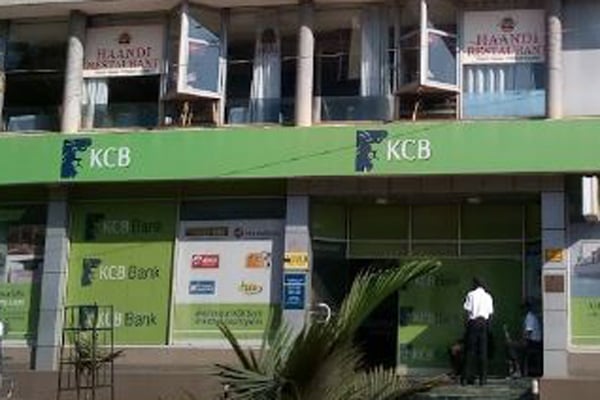KCB bank sued over Shs25b loan gone bad

In a lawsuit fi led against the bank on January 19, Tirupati contends that on July 17, 2012, KCB Uganda and Kenya agreed to advance a syndicated loan of $7m (about Shs25b). Photo | Courtesy
What you need to know:
- KCB is jointly sued with Bank of Uganda (BoU) and Financial Intelligence Authority (FIA)
KCB Bank Uganda and Kenya have been dragged to the Commercial Court over a Shs25b ($7m) loan facility extended to Tirupati Development (U) Ltd that turned out to be bad.
KCB is jointly sued with Bank of Uganda (BoU) and Financial Intelligence Authority (FIA).
In a lawsuit filed against the bank on January 19, Tirupati contends that on July 17, 2012, KCB Uganda and Kenya agreed to advance a syndicated loan of $7m (about Shs25b).
“As collateral for this facility, the plaintiff (Tirupati), agreed to provide the second (KCB-Uganda) and third (KCB-Kenya) defendants a series of certificates of title to its properties,” the court documents read in part.
Adding: “The second (KCB-Uganda) and third (KCB-Kenya) defendants agreed to the plaintiff’s loan negotiation fees in the sum of 0.5 percent of the loan amount. This amounted to $35,000.”
Tirupati argued that it received $6.9m instead of the $7m loan requested. It was also agreed that during the contracting period, all principal and interest payments with respect to the loan facility were to be made through Tirupati’s dollar account.
Further in its lawsuit, Tirupati argues that in 2018 it noticed and complained to the banks about several suspicious transactions on its current and loan accounts. The banks reportedly did not provide a coherent explanation for the transactions.
“The plaintiff (Tirupati) also made demands for a reconciliation of accounts, clarity on the status of their loan repayments, and requests for the issuance of the bank statements. None of these requests were honoured. This inevitably led to the plaintiff’s failure to meet her loan obligations,” the petition states.
The petitioner further claims that in 2016, the banks opened two separate dollar denomination loan accounts in its name without its consent and knowledge.
“They (banks) failed to disburse the total agreed amount of $7m. They debited the plaintiff’s account with loan negotiation fees above the agreed amount,” Tirupati states in its court documents.
Tirupati also avers that by the banks opening and operating two separate dollar accounts in its names without its consent, they appropriated to themselves the Tirupati name, goodwill, reputation, integrity and business acumen.
“They (banks) acted for private gain by operating unexplained suspicious transactions on the plaintiff’s current and loan accounts. The plaintiff (Tirupati) will aver and contend, as is pleaded further below, that these activities were illegal,” the petition states.
Tirupati also contends that despite servicing the loan fully, the banks have since refused to return all its titles that were pledged by them as security, proportional to the debt paid.
BoU has been sued in the capacity of being a regulator mandated to ensure that licensed banks operate their businesses in a sound manner and in compliance with the law. The Financial Intelligence Authority has been added onto the suit as the statutory authority charged with enforcing the law against Anti Money Laundering and Counter Terrorist Financing.
Tirupati argues that the KCB has continued to demand prohibitively high sums totaling $4,564,859.28, which it claims is not backed by evidence and it has reason to believe it is the product of fraud perpetuated by them.
It further claims that the refusal by KCB to give its records of bank statements of her current and loan account statements is illegal and amounts to fraud.
By press time last evening, KCB had not yet filed its defence.
MONEY LAUNDERING
Under alleged money laundering claims, Tirupati says it has received conflicting statements of transactions on its account, covering the period of the entirety of the loan, which indicate highly suspicious transactions akin to money laundering on the part of KCB.
“The plaintiff will aver and contend that the said sums represented the proceeds of some form of activity that may have constituted crime necessitating the need for deceit on the part of second and third defendants (banks),” the court documents state.




